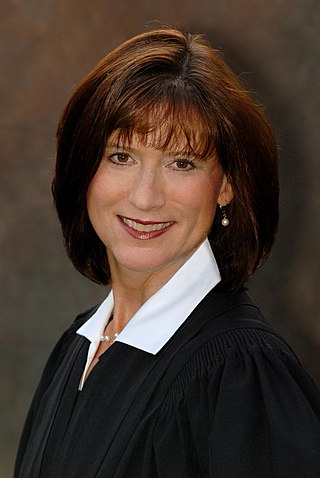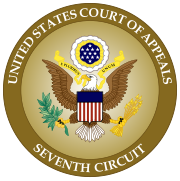Ballot access are rules and procedures regulating the right to candidacy, the conditions under which a candidate, political party, or ballot measure is entitled to appear on voters' ballots in Elections in the United States. The jurisprudence of the right to candidacy and right to create a political party are less clear than voting rights in the United States. As election processes are decentralized by Article I, Section 4, of the United States Constitution, ballot access laws are established and enforced by the states. As a result, ballot access processes may vary from one state to another. State access requirements for candidates generally pertain to personal qualities of a candidate, such as: minimum age, residency, and citizenship. Additionally, many states require prospective candidates to collect a specified number of qualified voters' signatures on petitions of support and mandate the payment of filing fees before granting access; ballot measures are similarly regulated. Each state also regulates how political parties qualify for automatic ballot access, and how those minor parties that do not can. Fundamental to democracy, topics related to ballot access are the subject of considerable debate in the United States.
A write-in candidate is a candidate whose name does not appear on the ballot but seeks election by asking voters to cast a vote for the candidate by physically writing in the person's name on the ballot. Depending on electoral law it may be possible to win an election by winning a sufficient number of such write-in votes, which count equally as if the person were formally listed on the ballot.

The 2004 presidential campaign of Ralph Nader, political activist, author, lecturer and attorney began on February 23, 2004. This was Nader's third presidential campaign, having run in 1996 and 2000 campaign as the candidate for the Green Party; in 2004 he ran as an independent candidate. Nader won the 2002 endorsement of the Reform Party USA, and thus appeared on the ballot as the Reform Party candidate in several states. In some states, Nader was on the ballot as an independent candidate, while in other states, Nader was deemed not to have met the requirements for ballot access.
The Oklahoma Libertarian Party is the state affiliate of the Libertarian Party in Oklahoma. It has been active in state politics since the 1970s, but due to Oklahoma's ballot access requirements the party has been an officially recognized party during only portions of the last twenty-five years. In 2016, The Oklahoma Libertarian Party regained ballot access. The state party has secured ballot access through at least 2024.

Diane Schwerm Sykes is an American jurist and lawyer who serves as the chief judge of the U.S. Court of Appeals for the Seventh Circuit. She served as a justice of the Wisconsin Supreme Court from 1999 to 2004.
The New Jersey Conservative Party, formerly abbreviated as the NJCP, now as CP-NJ, is a conservative political party in New Jersey, United States.

Milan Dale Smith Jr. is an American attorney and jurist serving as a United States circuit judge of the United States Court of Appeals for the Ninth Circuit. Smith's brother, Gordon H. Smith, was a Republican U.S. Senator from 1997 to 2009. Milan Smith is neither a Republican nor a Democrat, and considers himself to be a political independent.

Fortunato Pedro Benavides was an American judge. From 1994 until 2023, he served as a United States circuit judge of the United States Court of Appeals for the Fifth Circuit.

David Brookman "Brooks" Smith is a senior judge of the United States Court of Appeals for the Third Circuit. He was previously Chief Judge of both the United States Court of Appeals for the Third Circuit and the United States District Court for the Western District of Pennsylvania, and is the only judge in the history of the Third Circuit to have served as both a chief district judge and chief of the Court of Appeals.
Electoral reform in Illinois refers to efforts, proposals and plans to change the election and voting laws in Illinois.
Crawford v. Marion County Election Board, 553 U.S. 181 (2008), was a United States Supreme Court case in which the Court held that an Indiana law requiring voters to provide photographic identification did not violate the United States Constitution.
Anderson v. Celebrezze, 460 U.S. 780 (1983), was a United States Supreme Court case in which the Court held that Ohio's filing deadline for independent candidates was unconstitutional.

Nader v. Brewer, 531 F.3d 1028 is a 2008 decision by the Ninth Circuit ruling that certain Arizona voting regulations were unconstitutional under the First Amendment to the United States Constitution.

Citizens for Tax Reform v. Deters, 518 F.3d 375, was a decision that overturned an Ohio statute that made it a felony to pay petitioners by the signature.

N.Y. State Bd. of Elections v. Lopez Torres, 552 U.S. 196 (2008), was a case decided by the United States Supreme Court that involved a constitutional challenge brought against New York State's judicial election law, alleging that it unfairly prevented candidates from obtaining access to the ballot. The Supreme Court rejected this challenge and held that the state's election laws did not infringe upon candidates' First Amendment associational rights. Several concurring justices emphasized, however, that their decision reflected only the constitutionality of the state's election system, and not its wisdom or merit.

The California state elections was held on Election Day, November 6, 2012. On the ballot were eleven propositions, various parties' nominees for the United States presidency, the Class I Senator to the United States Senate, all of California's seats to the House of Representatives, all of the seats of the State Assembly, and all odd-numbered seats of the State Senate.
Thornburg v. Gingles, 478 U.S. 30 (1986), was a United States Supreme Court case in which a unanimous Court found that "the legacy of official discrimination ... acted in concert with the multimember districting scheme to impair the ability of "cohesive groups of black voters to participate equally in the political process and to elect candidates of their choice." The ruling resulted in the invalidation of districts in the North Carolina General Assembly and led to more single-member districts in state legislatures.

Trinsey v. Pennsylvania, 941 F.2d 224, was a case decided by the United States Court of Appeals for the Third Circuit that confirmed the validity of special elections held without a primary under the Fourteenth and Seventeenth Amendments to the United States Constitution. The case came about due to the death of H. John Heinz III, one of the U.S. senators from Pennsylvania, in a plane crash on April 4, 1991. Under the Seventeenth Amendment, state legislatures may give the Governor the power to appoint officials to fill temporarily vacant Senate seats until a special election can be held, and Pennsylvanian law contained a statute executing this and requiring no primaries for the special election. Instead, both the Democrats and Republicans would each internally select their candidates. John S. Trinsey Jr., a voter and potential candidate, asked the United States District Court for the Eastern District of Pennsylvania to declare the statute unconstitutional as a violation on the Fourteenth and Seventeenth amendments, because the lack of a primary removed his right to properly vote for candidates and delegated that power to political parties.
Several statutes, mostly codified in Title 18 of the United States Code, provide for federal prosecution of public corruption in the United States. Federal prosecutions of public corruption under the Hobbs Act, the mail and wire fraud statutes, including the honest services fraud provision, the Travel Act, and the Racketeer Influenced and Corrupt Organizations Act (RICO) began in the 1970s. "Although none of these statutes was enacted in order to prosecute official corruption, each has been interpreted to provide a means to do so." The federal official bribery and gratuity statute, 18 U.S.C. § 201, the Foreign Corrupt Practices Act (FCPA) 15 U.S.C. § 78dd, and the federal program bribery statute, 18 U.S.C. § 666 directly address public corruption.
People v. Aguilar, 2 N.E.3d 321, was an Illinois Supreme Court case in which the Court held that the Aggravated Unlawful Use of a Weapon (AUUF) statute violated the right to keep and bear arms as guaranteed by the Second Amendment. The Court stated that this was because the statute amounted to a wholesale statutory ban on the exercise of a personal right that was specifically named in and guaranteed by the United States Constitution, as construed by the United States Supreme Court. A conviction for Unlawful Possession of a Firearm (UPF) was proper because the possession of handguns by minors was conduct that fell outside the scope of the Second Amendment's protection.










